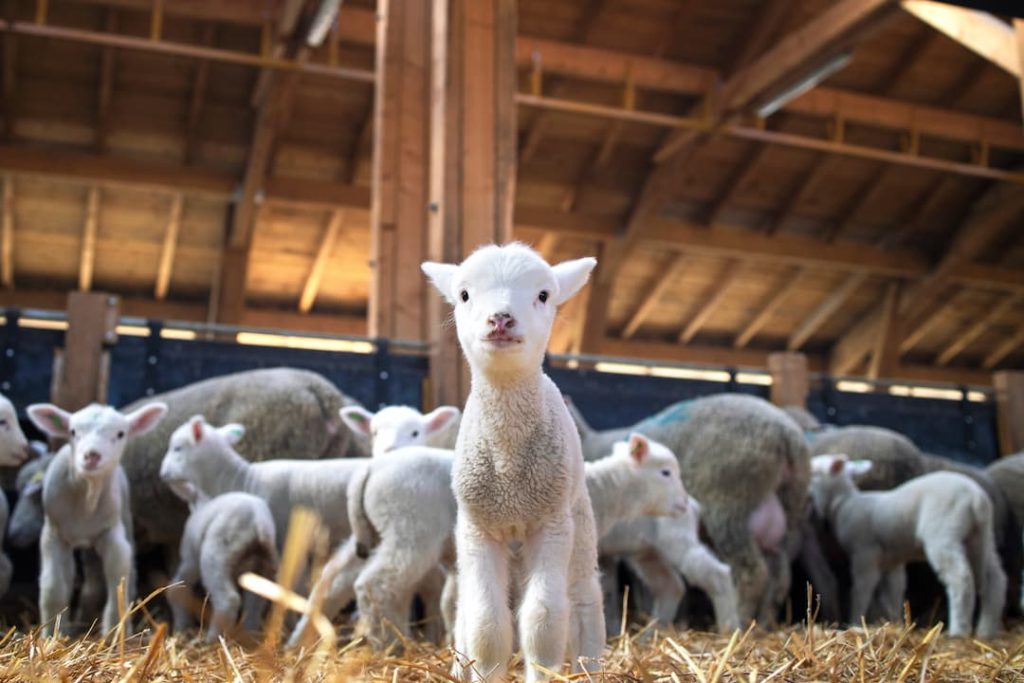Happy Christmas
TB Testing
There are lies, damned lies and statistics. TB is not only difficult to manage, it is also very difficult to measure. From the official statistics, it seems things are not going too well in the TB world: of the 4493 registered cattle herds in Devon in June 2022, 470 were not officially TB free. That is about 10%, meaning that 90% are officially TB free – good, surely? But are they really TB free? About 55% of breakdown herds are recurrences from a previous infection, and over 10% are persistently infected herds that are under restriction for more than 18 months.
These statistics also hide the problem that in the year to June 2022, 576 herds had a breakdown, which was up from 532 the previous year. From those numbers it seems that TB has got worse, and our own experience is that it continues to rise with frequent recurrences and troublesome persistently infected herds.
Much of this apparent increase can be explained by the increase in testing frequency – six monthly testing has found more infected animals, but it is disappointing that despite badger culling, more testing with both skin and gamma tests, and more stringent rules on movements and biosecurity, things don’t seem to be getting much better.
Our February farmer meeting will explore the reasons behind these statistics, and discuss ideas on what we do next, including the proposed DEFRA strategies for badger and cattle vaccination. We will also demonstrate some of the new testing and management systems that we have been using on some farms to find infected animals that the statutory tests miss, and how we can help ourselves in controlling this most difficult of diseases.
Meanwhile, we are trying our best to keep up with the demands for testing: we are increasing our testing staff by recruiting some Approved Tuberculin Testers to help through next year, but this will take a while. Please get tests booked in promptly and accept that there may be several weeks delay before we can get to you for routine tests.
Our throughput requirements still stand, with farms who opt for peak time testing putting through 70 animals per hour on day one, and 100 per hour on day two. We will demonstrate how this can be done at the TB meeting on February 8th.
Lambing Offer
We are repeating our seasonal lambing offer for the coming lambing season. Please note that this offer is based around the principle that we generally have available vets in the afternoons who can provide this subsidised service at the surgery. Sometimes they are doing other things, so it is essential that you call and make sure someone is available and there is a suitable slot for you. Please note that if any animal needs urgent attention, don’t wait – call us immediately.
Seasonal Sheep Offer: January – April 2023
Book in any sheep or lamb between 2.00 and 5.30pm on any working weekday and we will fix it for a fixed price of £40.00 plus the costs of any materials or medicines.
- Lambing
- Caesarean section
- Vaginal or uterine prolapse
- Fractures
- Umbilical prolapse
- Entropion injections (multiple)
- Sick sheep and lambs
Call us and book them in to the Witheridge Surgery 01884 86023
Winter meeting programme
We are reviving our farmer meeting programme with three events planned for the new year. Please make a note of the dates.
Please come along for a pasty and a drink, and get involved with these topical topics.
Winter Meeting Programme 2023
February 8th – TB management and control
- Current situation in Devon
- Badger control – culling and vaccination
- Cattle vaccination proposals
- Testing and handling systems
- New testing, management and control systems
February 22nd – Beef and Sheep evening
- The new Animal Health Pathway – DEFRA scheme to help with vet costs
- Worming strategies and parasite control
- Neonatal lamb and calf care – living with less antibiotics
March 8th – Dairy Evening
- Johns – tracking progress and new ideas on control and eradication
- Dry cow therapy – sealants and antibiotics
Avian Influenza
We are experiencing the worst outbreak of Avian Influenza ever recorded. This outbreak is caused by a highly pathogenic strain of the Type A influenza virus (H5N1) which is known for its virulence. The disease is notifiable, and so any suspected outbreak must be notified to APHA.
The disease may show as unexplained deaths, or swollen heads, difficulty in breathing, blue discolouration. If you have concerns, ring us for advice.
It is a legal requirement for anyone with more than 50 birds to register their flock with DEFRA, and those with fewer are strongly advised to register too.
The disease is mainly being spread by infected wild birds, and we are currently under an order (the Avian Influenza Prevention Zone) which gives stringent conditions to reduce the risk of domestic birds contracting the disease. These restrictions include:
- Preventing direct and indirect contact between your birds and wild birds or other potential carriers of disease
- Housing in wildlife resistant housing where possible
- Netting outdoor birds to prevent direct or indirect contact with wild birds
- Covering water which may be contaminated by wild birds
- Taking care when purchasing or introducing replacement
Avian influenza is a zoonosis – it can be caught by humans, although it seems that close contact is needed for transmission. There is hope for a vaccine, but like all ‘flu vaccines, there are difficulties due to the rapid mutations of the virus.

